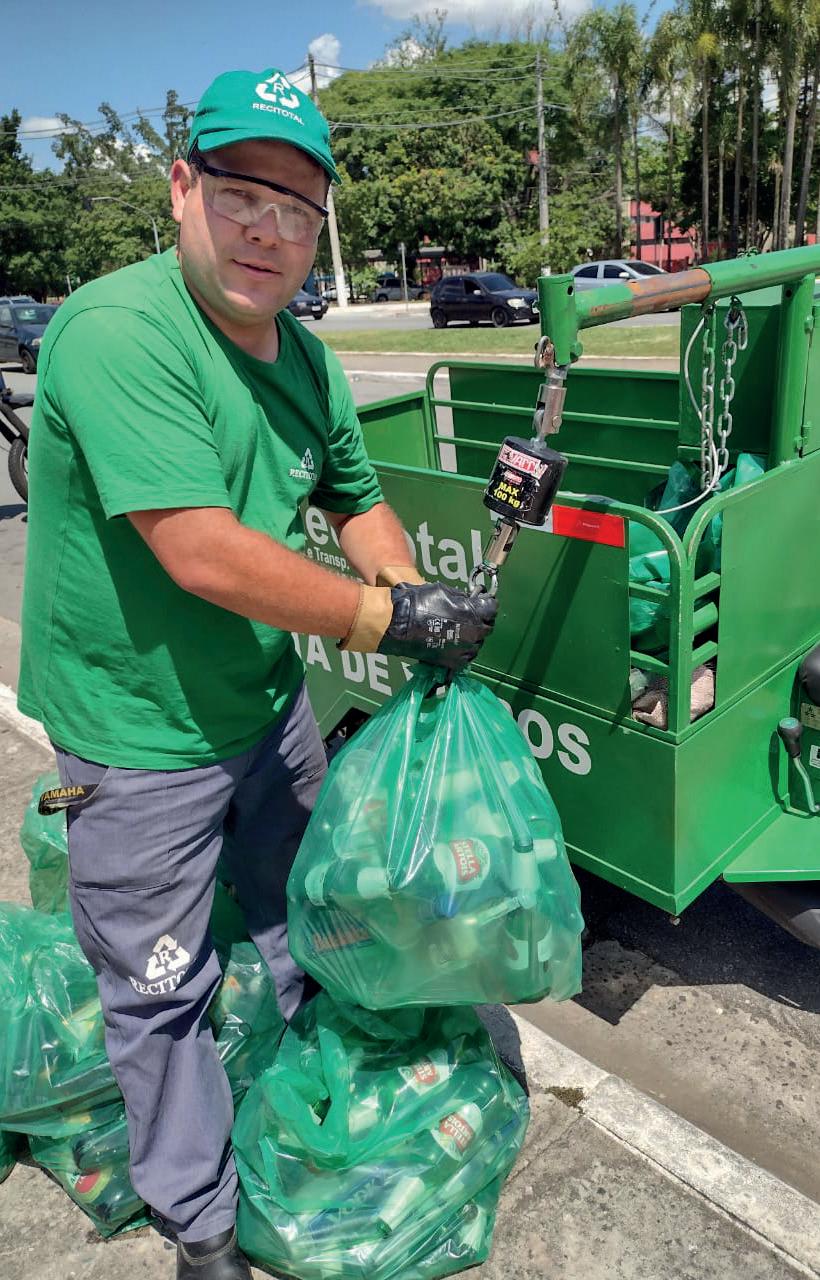
5 minute read
Recycling: Recitotal

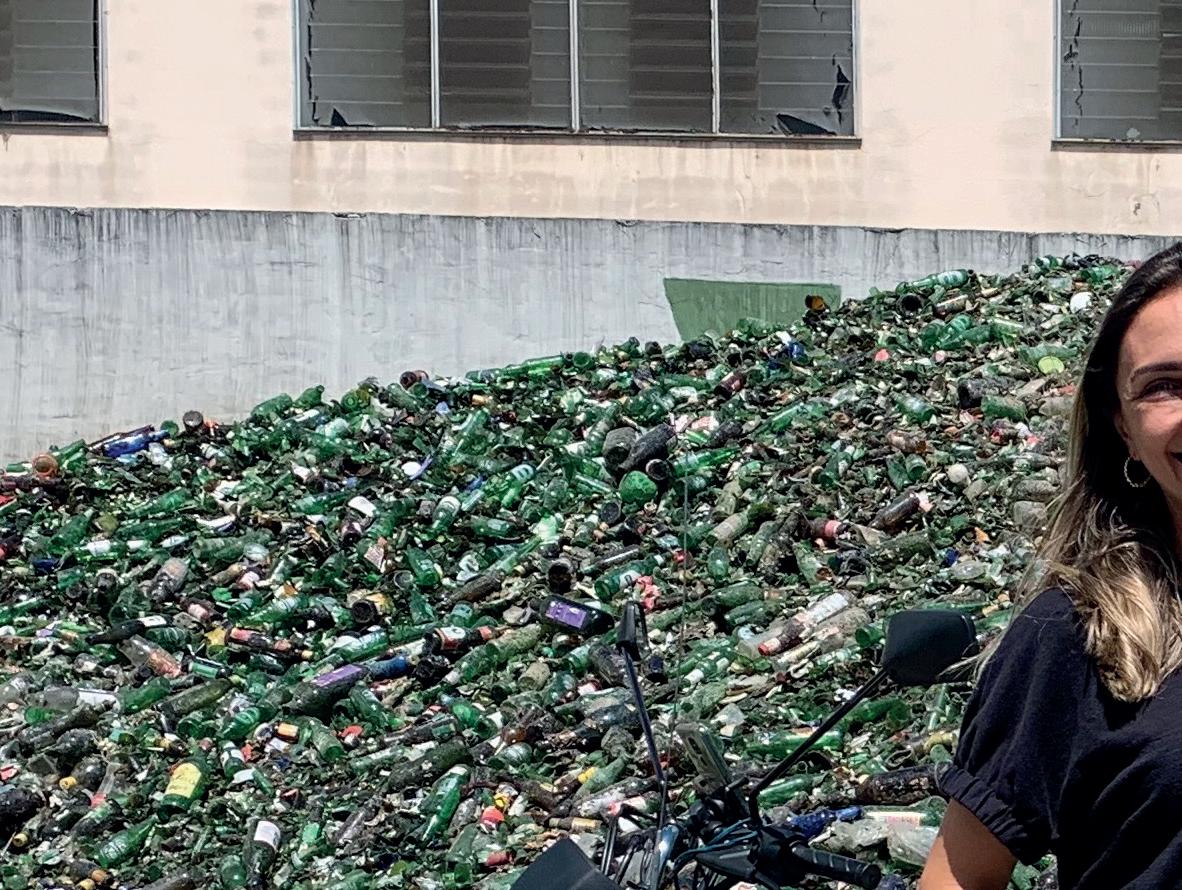
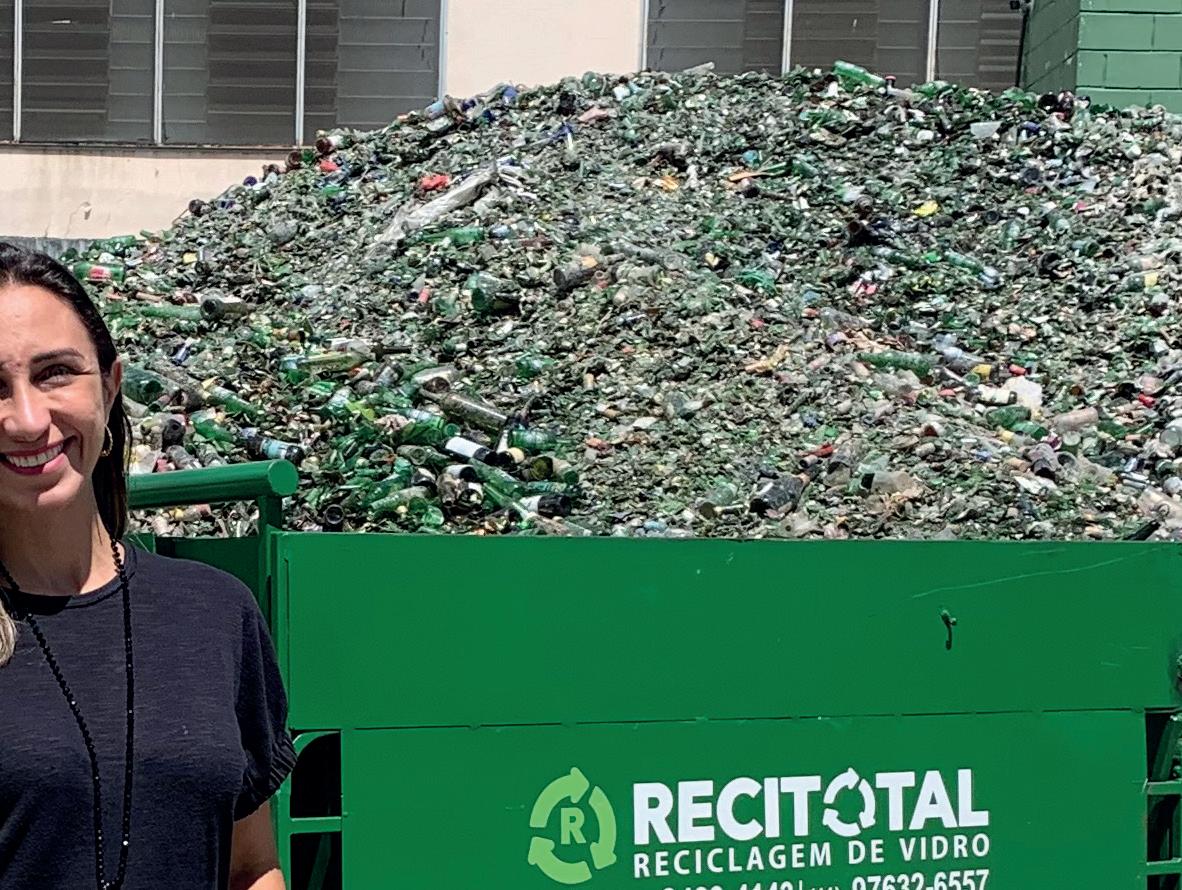
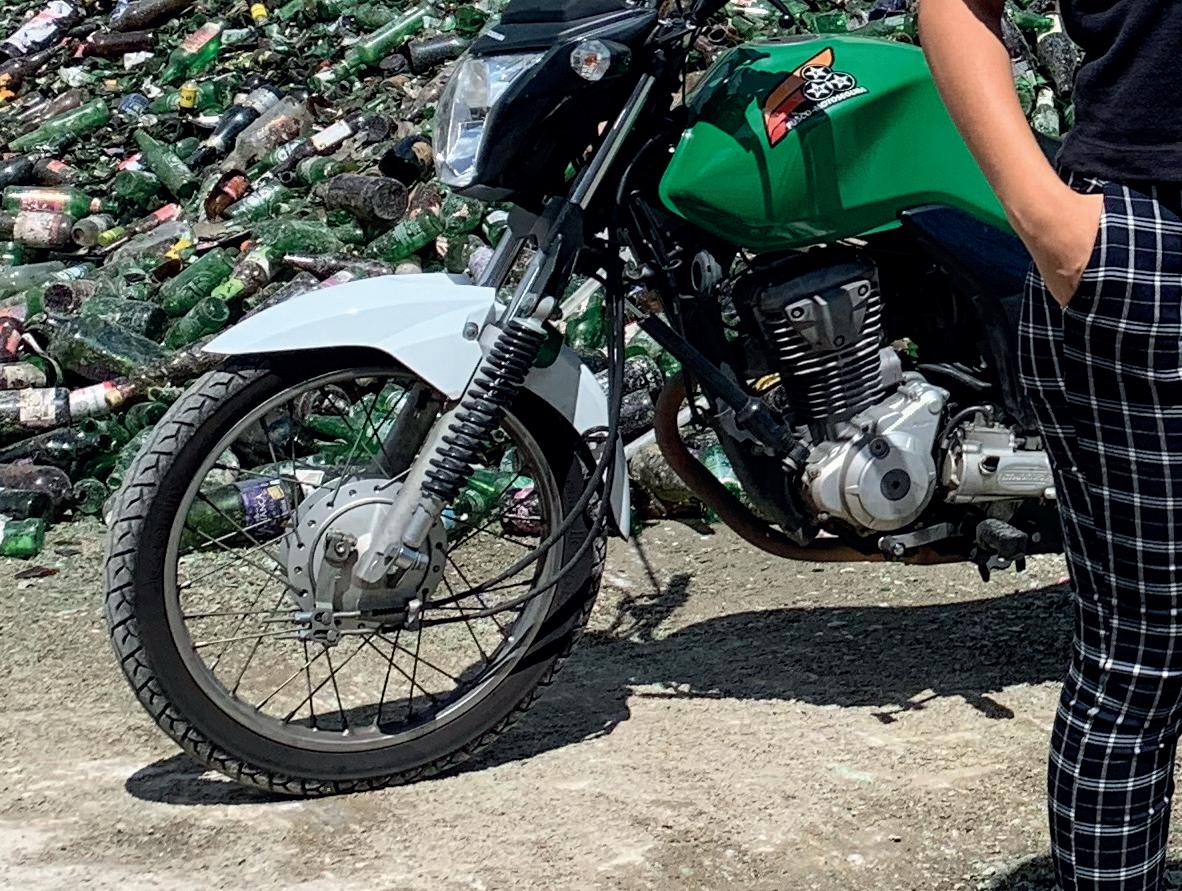
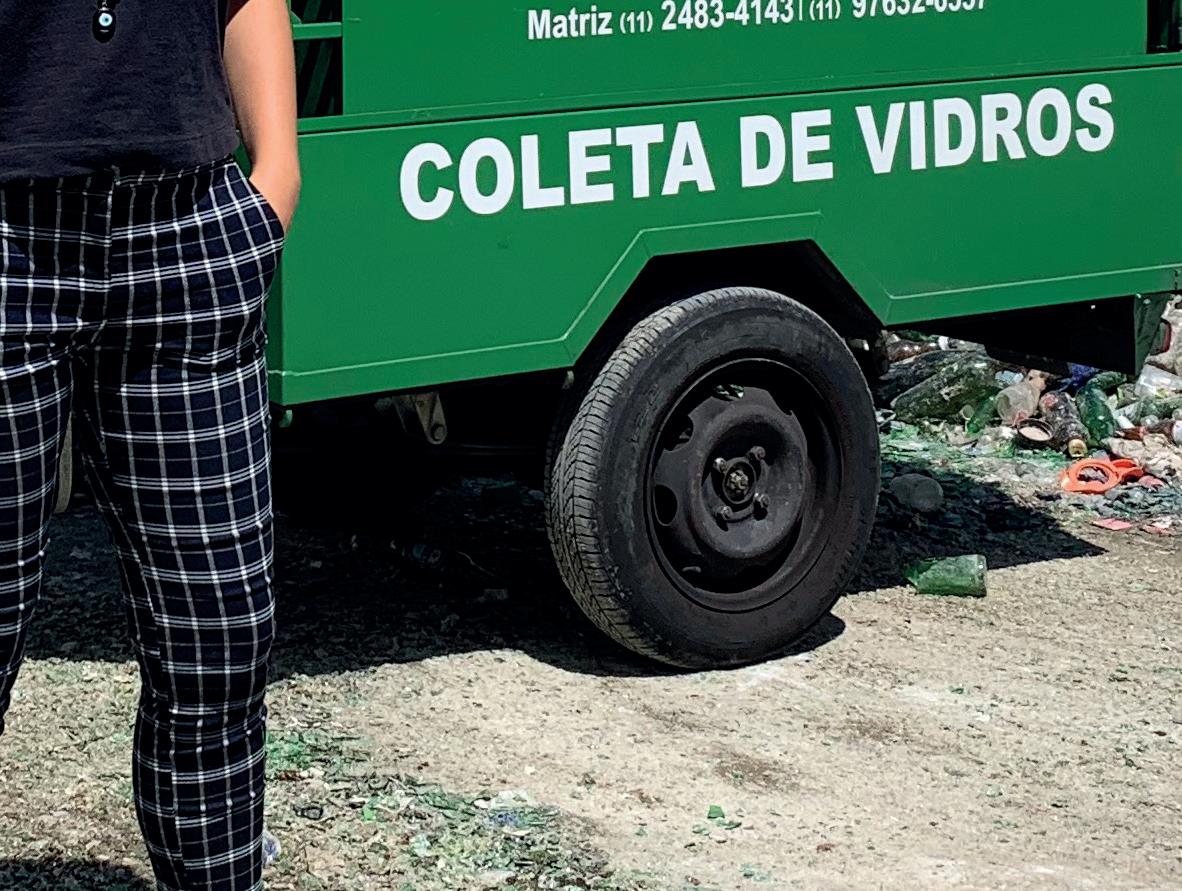
� Renata Tambasco with glass collected from the motorised tricycles. � Recitotal Managing Director Renata Tambasco.
Increasing glass recycling rates in Brazil
Recitotal is glass recycling and processing company based in São Paulo, Brazil. Renata de Moraes P. Tambasco* outlines how the company uses an unusual method to improve glass collection rates.
In Brazil, the culture of recycling and handling the waste to bottle banks is not as common as in Europe; recycling awareness within the population needs to be improved. Therefore, in 2019, Recitotal began a recycling project to increase glass collection rates in the country.
It wanted to raise awareness in the community that waste can be reused and recycled. The organisation also wanted to ensure the method used would be memorable to the public.
The company hit on the idea of using motorised tricycles (Fig 1) that were nimble in heavy traffi c. They were painted green to represent the international standard for glass recycling and to standout to the public. Each tricycle also has a Glass Collection identifi cation.
Now, each day, Recitotal staff travel the same 5km route via the tricycles, collecting glass bottles and jars from bars, restaurants and condominiums (Fig 2).
What they collect in their 400kg buckets returns to manufacturing plants to be transformed into reusable glass packaging.
The project was created inside the Recitotal environment and was supported by the owners. Every day, we get more inquiries from businesses to be on a ‘pick list’ and companies to support the cause. We currently collect glass for O-I and are in the spotlight for other major glass companies.
Increasing awareness
Due to my past experiences in project management and team leadership, the associates at Recitotal invited me to embrace the challenge of leading the company, despite having no previous experience of the glass industry.
The passion that has motivated me since the beginning was to promote glass recycling itself; glass is one of the few materials that can be recycled endlessly without any loss of its original proprieties.
Consumption of glass in Brazil is enormous, but the knowledge that people or even restaurants have such an important role to play in glass recycling has been left behind.
We decided that if we could communicate with people in the hospitality sector, it would bring recycling to their attention. For example, the difference that could be made with a simple change of lifestyle, like sorting waste into recyclables and non-recyclables at houses and workplaces.
Also, the industry is looking to glass as a better option than plastic. We all know that not all plastics can be fully recycled, so if glass could overcome this product, it would be a win-win situation for all of us.
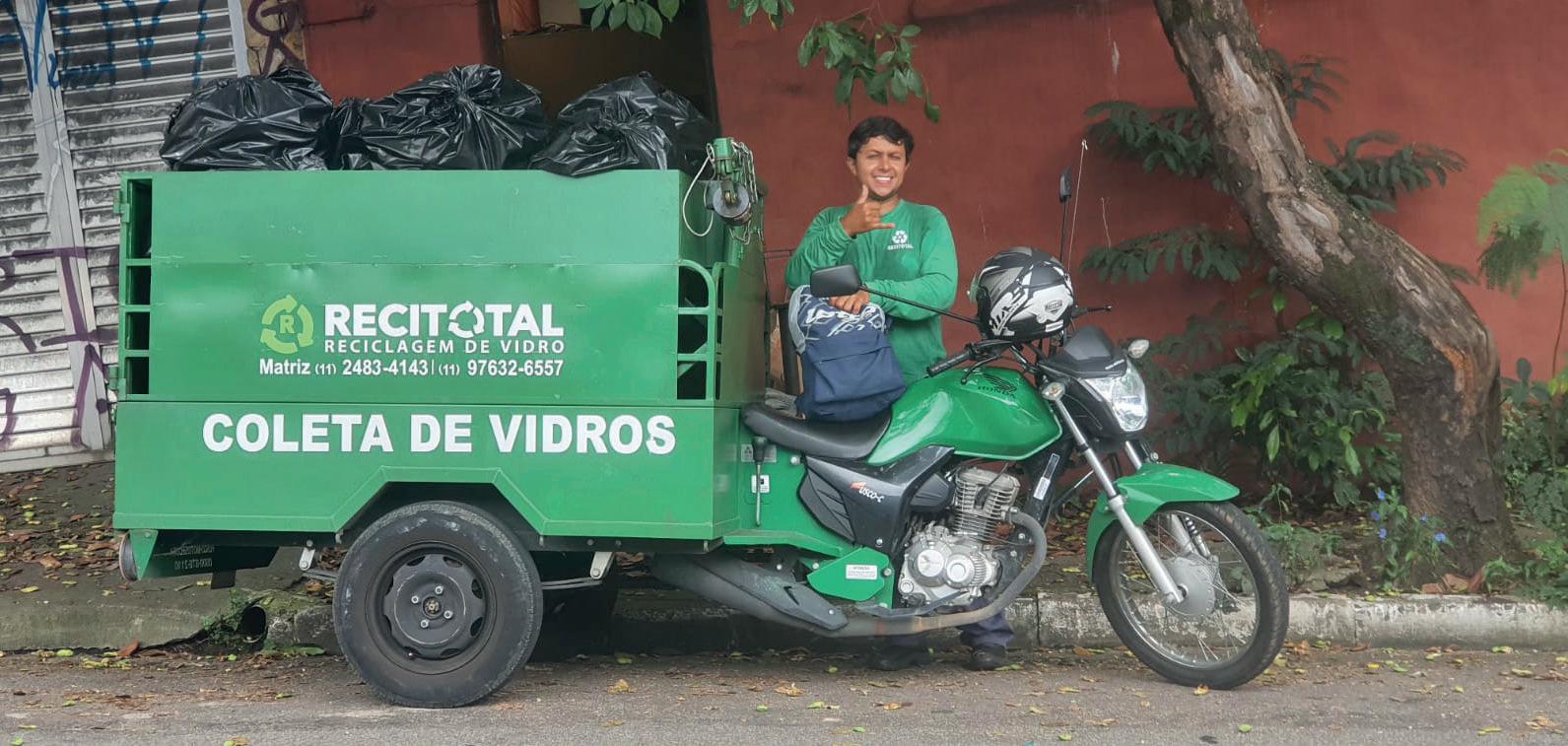
� Fig 1. The motorised tricycles used for glass collection.
Collection method
The main idea is to make known to the community that waste can be divided into something reusable and recyclable.
This can be witnessed when people see our tricycles passing by and stop the driver to hand over glass bottles and jars.
This happens because we use the same driver in each neighbourhood, so people start to know them and trust the service.
When we pick up glass directly for major producers, we position staff strategically so we can start this awareness.
The motorised tricycles were chosen because not only is faster to move around and easier to manage, but they also bring people’s attention, so we endorse the idea that recycling is ‘cool’.
We also tried to use a small truck, but it was less efficient on the daily routine, and also more expensive and less efficient on an environmental pollution level.
Recitotal has also developed technology to track each collection with geolocation and weight, which creates a very interesting database
We started the project in São Paulo, but now we also have begun collecting glass in Rio de Janeiro on a small scale.
So far, we have collected over 600 tons of glass since the scheme began in 2019. Each tricycle does eight tons per month, but we are working to improve those numbers.
Other projects
Recitotal has many other projects undergoing at this moment, all of them are to seek a better way to collect materials and develop people´s awareness about recycling.
In smaller cities, we are pairing with the city council and installing bottle banks, as well as advertising the benefits
� Fig 2. The tricycle buckets can hold up to 400kg of glass. of recycling using bars, restaurants and the local community. This so they can encourage others and decrease the waste generated by the population.
As I said before, the consumption of glass in Brazil is huge. We cannot afford to flood landfill sites with materials that could be recycled. We aim to bring the benefit of glass recycling to the general public, especially through the partnership of big companies.
Future challenges
Today´s recycling rates for glass in Brazil barely reaches 40%, while approximately 98% of aluminium waste is recycled.
We definitely need to put special attention to glass recycling, as it is one of the best packaging materials for food and the most sustainable for the environment.
This cause needs to grow its reputation to have an influence on the consumers’ decisions.
Our biggest challenge so far is logistics, and for this point of operation we need the support of big corporations to get involved on the benefits of recycling.
The UK glass industry is trying to reach net zero carbon emissions by 2050, and I believe that the industry in Brazil shares this concern. However, I cannot answer on their behalf. But, for sure, the industry can count on Recitotal to make this happen. �
*Managing Director, Recitotal, São Paulo, Brazil https://www.recitotal.com.br/
